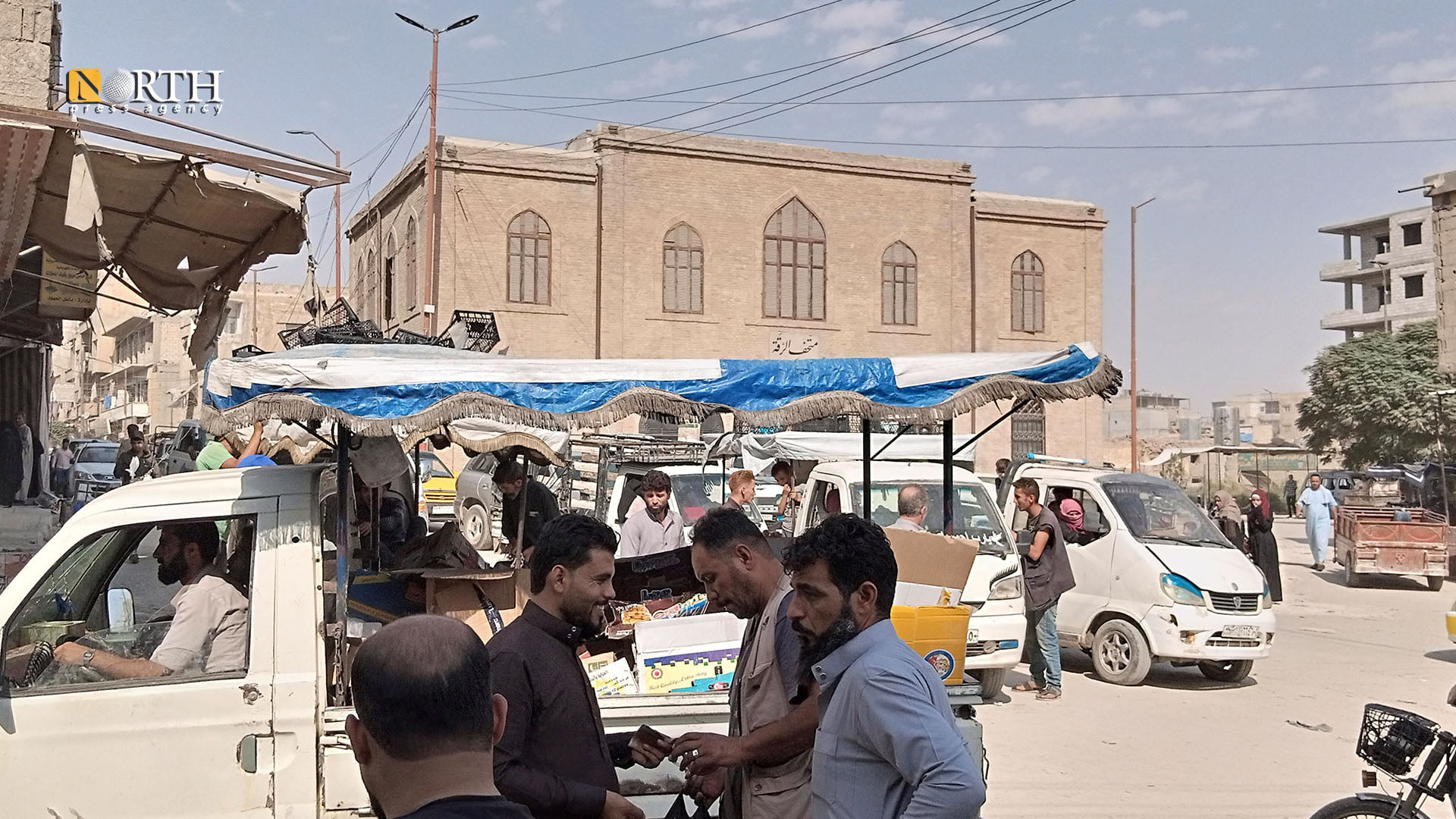Syria’s AANES is about forming committee to evaluate economic and customs policy
RAQQA, Syria (North Press) – The administration is in the process of forming a committee to evaluate the economic and customs policy in the region, an official of the Autonomous Administration of North and East Syria (AANES) said on Sunday.
“The committee will be formed soon and will consist of Economic and Agriculture, and Public Finance Boards,” Salman Barudo, co-chair of the AANES Economic and Agriculture Board, said.
“One of the tasks of the committee, once formed, is to follow up the prices of the imported materials, checking them, and revealing the circumstances in commercial transactions and the fictitious prices for goods imported into the region,” Barudo told North Press.
On September 30, Marwan Hamadeh, co-chair of the Chamber of Commerce in the city of Raqqa, north Syria said, “Reducing or even canceling customs’ taxes on goods entering northeast Syria supports the purchasing power of the population.”
The purchasing power is the amount of goods and services that can be purchased using one monetary unit, as purchasing power is linked to the exchange rate of the currency, so it rises with the increase in the currency price and decreases with its decrease.
The purchasing power in Syria has declined during a decade of war, and has been affected by the drop in the exchange rate of the Syrian pound against foreign currencies, including the US dollar, the main currency in global financial transactions.
UN reports indicate that more than 90% of the Syrian population lives below the poverty line after a decade of war and crises.
Poverty line is the level of income to meet the minimum living conditions, which the World Bank sets at $1.90, while the humanitarian needs of the population are increasing due to the war conditions.
In early July, the UN World Food Program tweeted that Syrian families are resorting to debt to buy basic necessities, reduce the amount of food they eat and buy it in smaller quantities.

